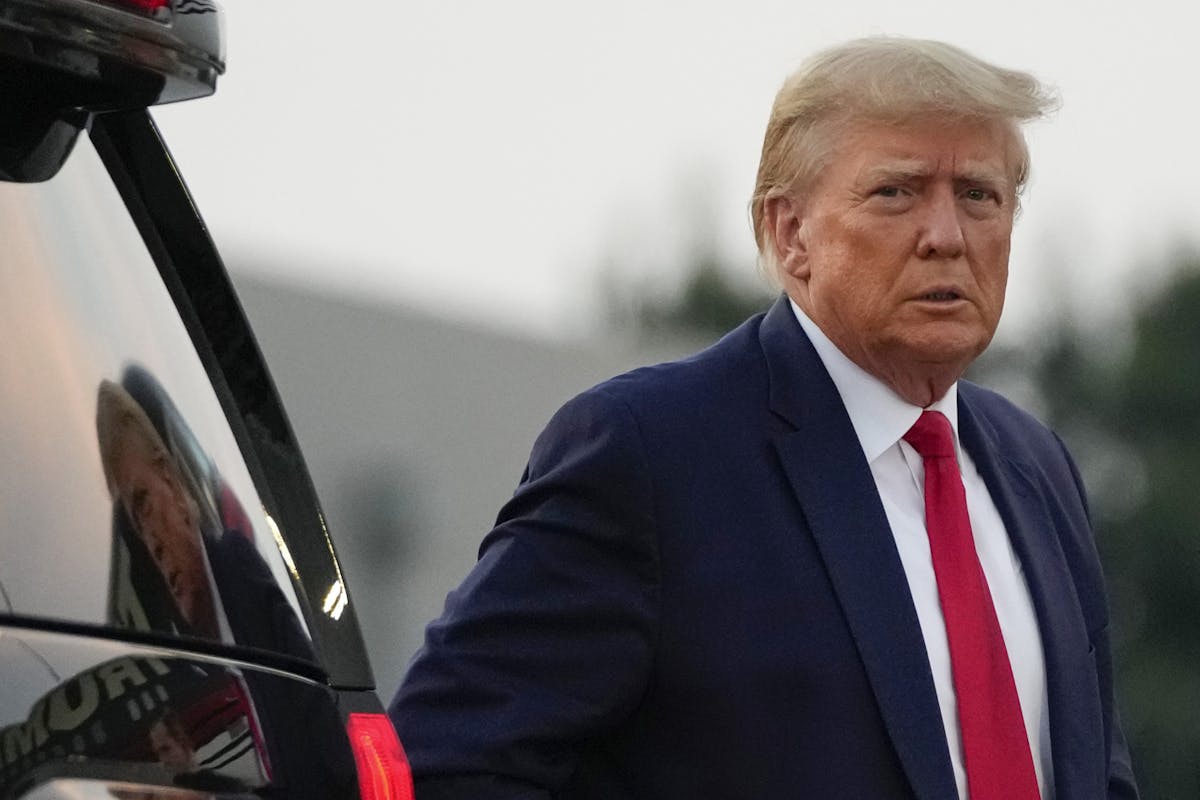Trump Appears Worried That His Former Spy Chief Could Spill Secrets to Jack Smith
The one-time director of national intelligence rejected the assertion that the election was stolen.

The request from President Trump that Special Counsel Jack Smith hand over “all documents” relating to grand jury testimony of Mr. Trump’s second director of national intelligence, John Ratcliffe, suggests a particular interest in what the spymaster has to say.
That request for discovery, in the January 6 case overseen by Judge Tanya Chutkan, is nestled in a filing that calls for vast amounts of discovery from the government, whose duty to produce evidence Mr. Trump asserts is a “constitutional obligation” of prosecutors. That duty, normally taken seriously by judges, derives from the due process clause of the 14th Amendment.
While Mr. Trump’s requests are voluminous, the specific focus on Mr. Ratcliffe’s testimony to the grand jury that handed up charges against Mr. Trump stands out for its specificity. Mr. Ratcliffe was a congressman of Texas who was elevated to lead America’s intelligence community in July 2019. He served until the end of Mr. Trump’s term.
At the time of Mr. Ratcliffe’s nomination, Mr. Trump expressed his hope that he would “rein in” America’s intelligence agencies, which the former president asserted had “run amok.” Senator Schumer and Democrats opposed his nomination, asserting that his only qualification was “blind loyalty” to Mr. Trump. The DNI, created in the wake of the attacks of September 11, 2001, coordinates the work of 17 intelligence agencies, including the Central Intelligence Agency and the Federal Bureau of Investigation.
Although Mr. Ratcliffe has long been a supporter of Mr. Trump, it appears his views diverged from those of his boss in the days after the 2020 election. That rift is detectable in the testimony to the January 6 congressional committee of a former White House staffer, Cassidy Hutchinson. She served as an aide to Mr. Trump’s erstwhile chief of staff, Mark Meadows.
Ms. Hutchinson’s account of a White House in chaos and a president intent on staying in power was a dramatic highlight of the Democrat-dominated committee’s televised hearings. She painted a vivid picture of Mr. Ratcliffe as set against Mr. Trump’s post-election strategy. She reported that he warned of “dangerous repercussions in terms of precedents set for elections, for our democracy.”
Ms. Hutchinson told Representative Liz Cheney that Mr. Ratcliffe felt that contesting the election “wasn’t something the White House should be pursuing” and that he didn’t “want much to do with the post-election period.” She relates that he was “concerned it could spiral out of control and potentially be dangerous.” Mr. Ratcliffe, she said, opined that it could put at risk the president’s “legacy.”
Mr. Smith could be particularly interested in the January 6 committee’s claim that Mr. Ratcliffe’s office “did not find any foreign interference in the voting process or counting.” This refuted a claim made by a Department of Justice official, Jeffrey Clark, that a “Dominion machine accessed the internet through a smart thermostat with a net connection trail leading back to China.” Mr. Clark has been criminally charged in Georgia for efforts to overturn the election in that state.
Mr. Ratcliffe’s words of warning to Mr. Trump could be pertinent — even crucial — to Mr. Smith’s case at trial. To secure a “guilty” verdict, prosecutors will have to show that Mr. Trump possessed the requisite mens rea, or guilty intent, to be held culpable for the conspiracies with which he is charged. Central to the 45th president’s defense appears to be the argument that he has never wavered in his belief that the election was stolen.
That position was bolstered by video footage out of Atlanta, where another one of Mr. Trump’s advisers, Sidney Powell, related that the former president’s “instincts told him he had been defrauded, that the election was a big fraud.” If Mr. Ratcliffe, who had at his fingertips all of America’s secrets, disagreed, Mr. Trump’s position could appear less reasonable, weakening his defense.
A report from the National Intelligence Council, overseen by Mr. Ractliffe and presented to Mr. Trump on January 7, 2021, reported “no indications that any foreign actor attempted to alter any technical aspect of the voting process in the 2020 US elections.” If Mr. Trump knew that conclusion on January 5, Mr. Smith could be one step closer to a conviction.

